Within the collaboration between UNESCO, RITA and Equitable Origin, the “Diagnostic Workshop for Indigenous and Community Media in the South Zone” was held in March. The objective of this workshop was to learn about the four fundamental thematic axes for the sustainability of a community media: Legal Certainty, Financial Certainty, Technical Certainty and Institutional Certainty.
The workshop was led by José Elfego de Jesús Riveros Hernández, the historical voice of the Teocelo Radio from Veracruz, the oldest community radio in Mexico. Elfego, with his more than 38 years of experience, guided the eight workshop participants through the necessary steps to be able to establish, sustain and scale an Indigenous community radio project. The workshop, which was initially planned as a face-to-face meeting, had to be held virtually due to the increase in infections resulting from the COVID-19 pandemic.

Nevertheless, the workshop participants had the opportunity to learn about the legal requirements for the implementation of community media. Mexico has strict regulations around granting radio frequencies. Elfego pointed out that “In the last 20 years, requesting a permit to operate a non-profit community or Indigenous station has become a terrible ordeal, due to all the systematic refusals from the SCT, COFETEL and IFETEL, unleashing at all times a ferocious hunt for communicators and criminalizing them, instead of guiding and helping them to exercise a right.”
The participants were able to share their own experiences, where they highlighted the importance of legal certainty for community radio stations, since these stations “promote gender equity and violence prevention. They also promote community tourism, nature conservation, promotion and dissemination of our rights, our culture, language”, one participant pointed out.
Another important issue that was addressed during the workshop was the infrastructure and technical capacity that are necessary to sustain an Indigenous community radio. In this segment of the workshop, it was mentioned that although technology today facilitates communications, there is still a gap in Indigenous territories where equipment and instruments, as well as connectivity, are insufficient. The reach of the equipment of these community Indigenous radios is usually limited. Added to this is the issue of preventive and corrective maintenance, for which technical skills and resources need to be developed.

In other words, being able to establish and develop an Indigenous community radio project requires significant investment and sponsorship, which is why, as a result of the workshop, participants reached the conclusion that a collective project with all the community radio stations is needed. These will seek to negotiate with the Mexican government and international bodies to obtain technical, legal, and economic resources to promote the development of Indigenous community radio stations in Mexico.
The success of this workshop demonstrated the synergy between UNESCO, TEOCELO, EO and RITA, institutions that were open to supporting these community radio initiatives and to continue creating spaces for collaboration to strengthen Indigenous rights in Mexico.

You must be logged in to post a comment.